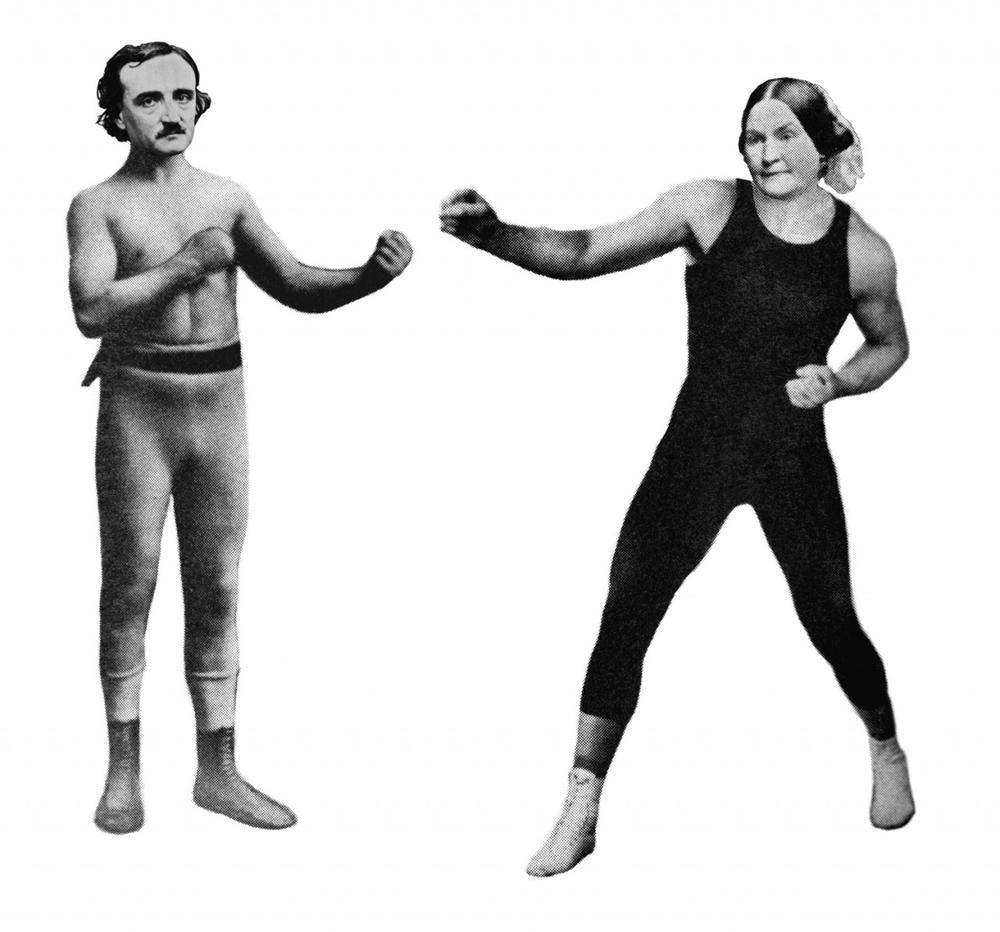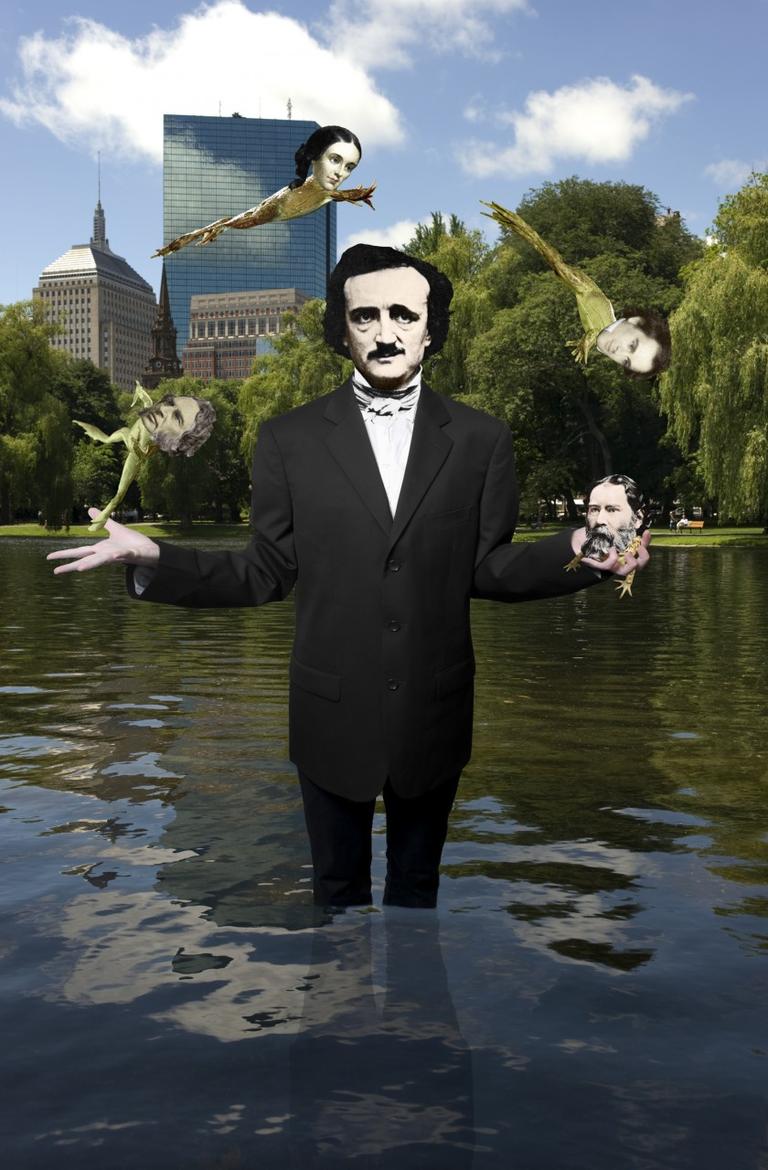Advertisement
Like It Or Not, Poe Was A Boston Boy

On this day, 201 years ago, gothic writer Edgar Allan Poe was born. The master of the macabre came into this world right here in Boston. But, as legend has it, Poe hated his home town — and Boston hated Poe right back.
Now Poe scholar Paul Lewis wants to set the record straight with a new exhibition that reunites the horror writer with his birth place. It's called "The Raven and the Frog Pond" and it's currently open at the Boston Public Library.
As it turns out, one of Poe's most famous short stories, "The Tell-Tale Heart," was first published in a Boston literary journal in 1843. The publication is one of Lewis' strongest pieces of "literary evidence" connecting Poe with the town where he was born.
Lewis curated the show and is also a literature professor at Boston College. As he showed me around the gathering of objects from the library's holdings and private collections, Lewis pointed to another bit of proof: the first edition of the gothic writer’s first book of poetry, "Tamerlane and Other Poems."

"He published it here in Boston in 1827 when he was 18 years old," Lewis explained, "and he wrote on this very crude cover 'by a Bostonian' in the author line. You don’t write that in the author line of your first book if you hate everything about Boston."
Lewis argues that Poe’s time in Boston influenced his development as a writer. But advocates in other cities where Poe lived are also laying claim to his legacy, including Edward Petit, the self-appointed "Philly Poe Guy."
"Philadelphia was really the place that honed and helped shape Poe’s craft," Petit said. "You know, the kind of works that we still read, that stuff happened in Philadelphia."
Then Petit listed off Poe's greatest hits: " 'The Black Hat,' 'Murders in the Rue Morgue,' 'Fall of the House of Usher,' 'Pit and the Pendulum,' 'William Wilson,' 'The Gold Bug' — and he began writing 'The Raven' while he was still living in Philadelphia."
Advertisement
This is just the kind of literary sparring Poe himself would’ve eaten up, according to Boston advocate Paul Lewis. In 1845, the author engaged in rhetorical combat with Cornelia Walter, a Boston Evening Transcript editor who shredded one of Poe’s public lectures.
"She writes 19 snarky comments about Poe," Lewis said, "making fun of his name and generally saying that people walked out on his performance and it was terrible. And he writes back, calls us 'Frogpondians,' says that were boring and makes some of his most critical comments."
Poe called Bostonians “Frogpondians” because of their moralistic croaking. This conflict fed the notion that Poe and Bostonians were at each other’s throats. The nickname was used in good fun though, according to Lewis. He said Poe saw literary criticism as a "contact sport,” and that before he was recognized as a gothic author, he was known as a harsh literary critic, earning him the nickname “the Tomahawk Man.”
"Boston writers like Henry Wadsworth Longfellow, James Russell Lowell and many others, he thought of them as doing this high-brow, moralistic, didactic writing in which they were using poems and stories to convey the truths that they wanted people to believe," Lewis said. "He felt no, these kinds of literature should be fun."
And, of course, Poe went on to write some of the most entertaining stories that have gone on to scare the willies out of generations of readers in Boston, and beyond.
This program aired on January 19, 2010.
